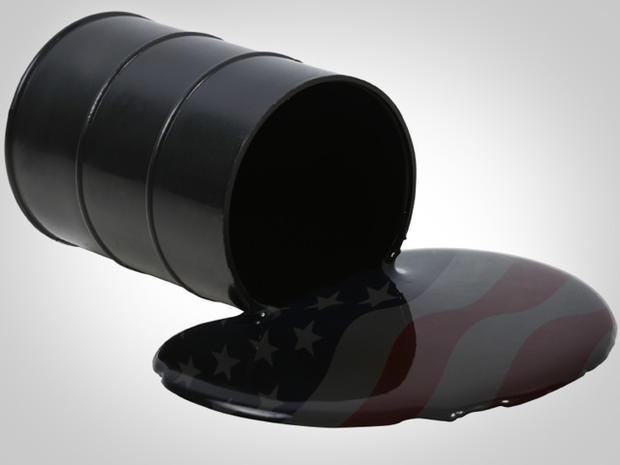Environmentalists protest proposed Canada to Texas oil pipeline
With just weeks to go before the Obama administration makes a key determination on the environmental impact of a planned massive oil pipeline linking Canada to Texas, protestors are planning a high-profile "sit-in" in front of the White House to block the project.
The environmentalists are planning to begin two weeks of sit ins at the White House Saturday to protest what they cast as "the largest carbon bomb in North America" - a planned 1,700 mile underground oil pipeline linking the tar sands fields of northern Alberta to oil refineries on the Texas Gulf Coast.
About 2,000 people total - taking shifts so that there are between 75 and 100 people present every day - are planning to participate in the protest against the proposed Keystone XL pipeline.
Large American oil companies and their allies in Congress, as well as the Canadian government, have been pressuring the Obama administration to approve the $7 billion, 36-inch pipeline. According to National Journal, Keystone XL would double the amount of oil being shipped through TransCanada pipelines, from 591,000 barrels to 1.3 million barrels each day. The company already operates underground pipelines taking oil from Alberta to Illinois and Oklahoma.
The U.S. State Department - which has jurisdiction because the pipeline would cross an international border - has said it will decide whether to approve the pipleine by the end of 2011. The project has been under consideration for nearly three years.
Backers of Keystone XL say it will increase America's domestic oil production with the help of a friendly ally and create 20,000 construction jobs in the process. Organized labor has teamed up with the oil industry to back the pipeline, and both have been pressuring the Obama administration for approval. In a sign of their influence, the House last month voted 279-147 to force the administration to make a decision about the pipeline by November 1. While the bill is not likely to advance in the Democrat-led Senate, it signaled the strength of the lobbying push in favor of the project.
"Today, with the U.S. economy still struggling, nothing is more important than jobs," Cindy Schild, the petroleum institutes's refining issues manager, told the Mercury News. "And construction of the pipeline would mean massive numbers of them."
Critics of the pipeline - who include celebrities like Radiohead singer Thom Yorke, actor Mark Ruffalo and NASA climatologist James Hansen, as well as some landowners and Native American leaders - say it will have a hugely negative impact on the environment. They also say it will not lower oil prices because the international market will simply adjust supply to account for increased production.
The pipeline would carry a tar-like form of crude oil called "diluted bitumen" across a wide swath of the country, through farms and wilderness, with spills possible in sensitive areas like Nebraska's Sand Hills, the Yellowstone River and the Ogallala Aquifer, an underground reservoir that supplies two million Americans in the Midwest with water.
University of Nebraska-Lincoln professor John Stansbury said in July the pipeline would likely experience 91 spills of more than 50 barrels of oil in its first 50 years. TransCanada, he said, has claimed there would only be 11 such spills in its presentations to American regulators.
Stansbury also said the company has badly underestimated how long it would take to shut down the pipeline in the event of a spill. A pipeline operated by TransCanada has already seen multiple spills, most recently in North Dakota and Kansas, and was shut down earlier this year. A spill last July in Michigan released 800,000 gallons of bitumen into the Kalamazoo River.
Critics note that turning tar sand into oil is far more energy intensive than refining conventional oil and point out that the process has already resulted in the creation of more than 60 miles of toxic holding ponds that kill birds and pollute waterways. They also complain that extracting the bitumen, which is done with steam or hot water and then produced by burning natural gas, will mean destroying significant portions of Alberta's boreal forest. Tar sand oil results in significantly higher greenhouse gas emissions than conventional oil.
Earlier this month, 20 climate scientists, including Hansen, sent an open letter to President Obama urging him to block the pipeline.
"The tar sands are a huge pool of carbon, but one that does not make sense to exploit," they wrote. "It takes a lot of energy to extract and refine this resource into useable fuel, and the mining is environmentally destructive. Adding this on top of conventional fossil fuels will leave our children and grandchildren a climate system with consequences that are out of their control. It makes no sense to build a pipeline system that would practically guarantee extensive exploitation of this resource."
Secretary of Hillary Clinton had said she was "inclined" to support the project, but she has taken a more measured stance as the debate has continued. The Environmental Protection Agency and a group of House Democrats have suggested that the State Department, in its assessments of the environmental impact of the project, is understating the risks.
Among the opponents of the project have been some senators in the states where the pipeline would be built, including Nebraska Senators Mike Johanns and Ben Nelson. While the oil industry lobbies heavily for the project, the Obama administration is facing competing pressure from core constituencies - environmentalists and organized labor - that are on opposite sides of the issue.
The State Department's Bureau of Oceans and International Environmental and Scientific Affairs is expected to release its final environmental impact statement on the pipeline by the end of the month. A decision will then be made following a 30-day period for public comment and a 90-day review period in which federal agencies provide their input.
